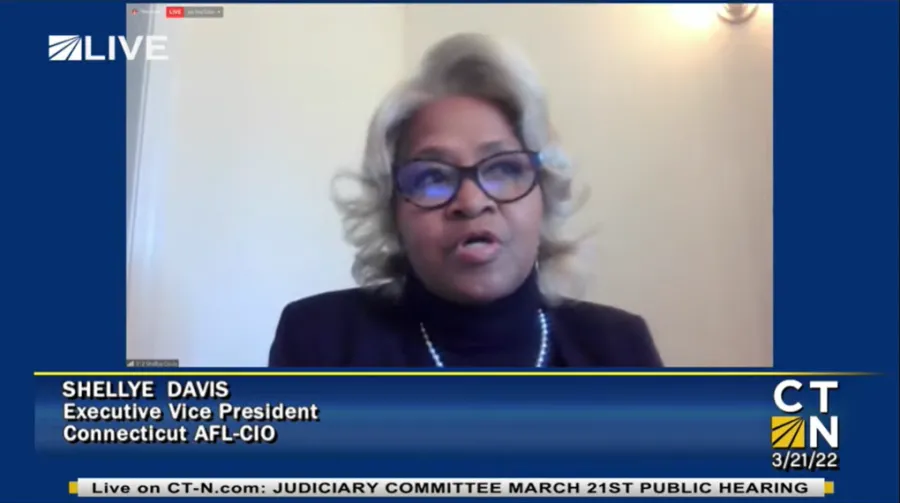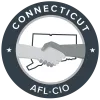Hartford Paraeducator Urges Improving Working Conditions in Testimony to Education Committee

HARTFORD – Shellye Davis, a longtime paraeducator in Hartford and the Executive Vice President of the Connecticut AFL-CIO, delivered impassioned testimony today before the Education Committee urging legislators to improve working conditions for paraeducators across the state.
The Education Committee held a public hearing on House Bill 5321: An Act Implementing Certain Recommendations of the School Paraeducator Advisory Council.
The Connecticut School Paraeducator Advisory Council was created by the legislature in 2008 and is co-chaired by Davis. In 2021, the legislature passed a bill directing the council to investigate the working conditions of Connecticut paraeducators.
“As Co-Chair of the Council, I’m proud to say that we’ve done that work, conducting an extensive survey of paraeducators across the state,” said Davis. “Thousands responded and I think it’s fair to say that it confirmed what many of us have experienced for some time – that paraeducators are often an afterthought and despite the important work they do, their efforts in the classroom are rarely prioritized or maximized. Those responses formed the basis of our recommendations.”
The council conducted a survey of 3,401 paraeducators on working conditions across the state with particular focus on wages, healthcare, professional development, and career advancement opportunities. Based on the survey data as well as detailed conversations with individual working paraeducators, the council developed eight specific recommendations.
Only three of those recommendations made it into the bill before the Education Committee.
“I urge you all to reread the report and add the remaining recommendations to the JFS language,” said Davis. “Now is the time for the Committee and the General Assembly to take immediate and meaningful action to raise paraeducator pay, lower our healthcare costs, and improve our retirement benefits.”
The three recommendations in the current version of the bill establish a clear professional development plan and structure for paraeducators, creates working group to explore a certification program for paraeducators, and makes common sense changes that allow paraeducators to attend PPT meetings and have access to student IEPs.
One of the missing recommendations include requiring the State Board of Education, in coordination with local education agencies, to conduct an annual review of healthcare plan options and compare the plans chosen by the LEAs with the Connecticut Partnership Plan. Another would require the State Board of Education to collect information on the number of paraeducators employed within each district, job titles, hourly rates of pay, number of hours and days worked, healthcare contributions as a percentage of salary, and annual salary calculated based on hours worked multiplied by the hourly rate.
“One would hope districts, the State Department of Education and the General Assembly would fully embrace our report’s recommendations given the profound learning loss that many students have sustained during the pandemic,” concluded Davis. “Well trained, well equipped and fairly paid paraeducators can be a stable force for students, providing additional support and reinforced instruction to curb and reclaim COVID learning losses.”
# # #
Click here to read Shellye Davis’s testimony before the Education Committee.
Click here to read the recommendations of the Connecticut School Paraeducator Advisory Council.
